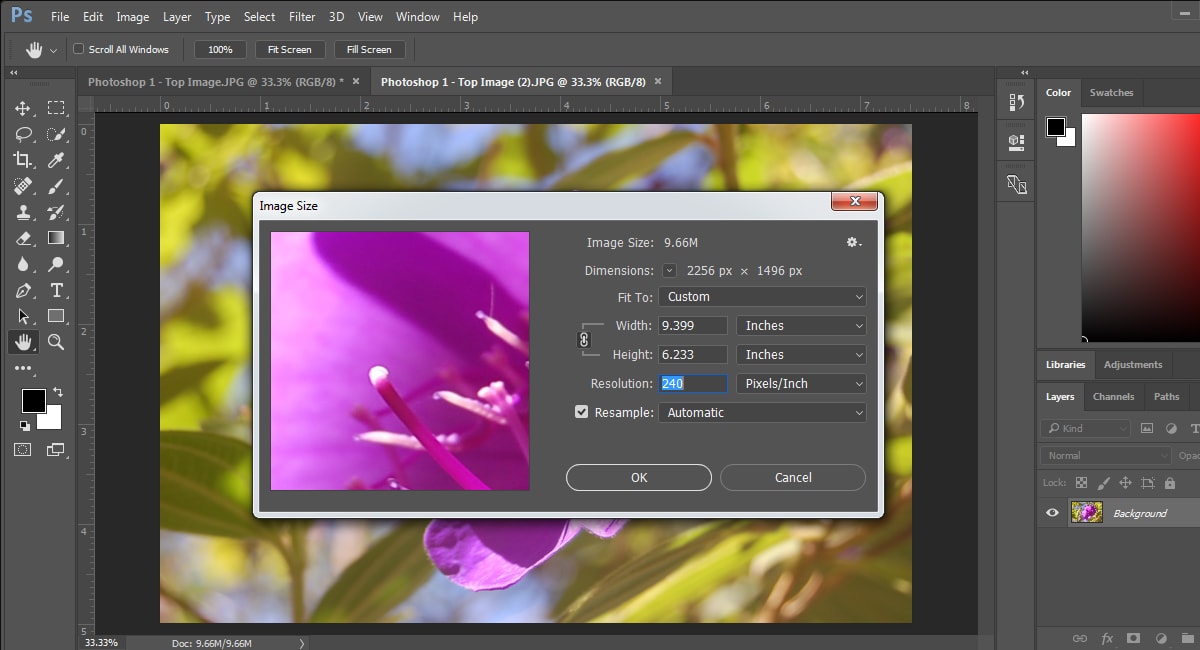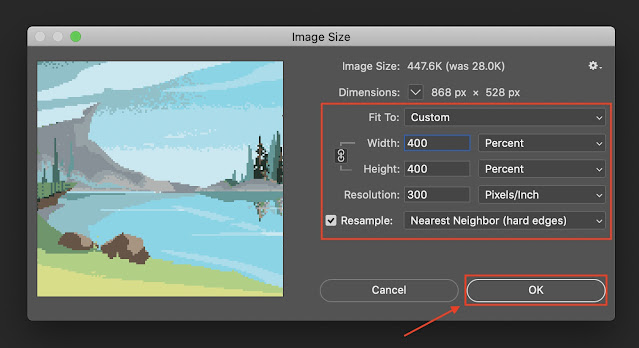How To Change The Pixels Of An Image

Imagine holding a vibrant photograph, its colors popping, memories swirling around you. Now, picture having the power to reach inside that image, to tweak a hue, soften an edge, or completely reimagine its visual landscape. It sounds like something out of a science fiction movie, but it's actually a skill attainable by anyone with a little curiosity and the right tools.
At its core, manipulating image pixels is the art of altering the fundamental building blocks of digital images. While it might sound intimidating, understanding the basics of pixel manipulation opens up a world of creative possibilities, from subtle photo enhancements to stunning digital art.
Understanding Pixels: The Building Blocks
Think of a digital image as a vast mosaic, where each tiny tile is a pixel. Each of these pixels holds color information, typically represented by numerical values for red, green, and blue (RGB). By changing these numerical values, we directly alter the color of the corresponding pixel.
The number of pixels in an image determines its resolution. A higher resolution image has more pixels, resulting in finer detail and sharper clarity. The term "pixel" was reportedly coined around 1965, becoming essential for digital imaging according to sources like IBM Journal of Research and Development.
Simple Pixel Manipulation Techniques
One of the most basic ways to modify pixels is through adjusting brightness and contrast. Increasing the brightness essentially adds a fixed value to each pixel's color components, making the image lighter. Reducing it darkens the image.
Similarly, contrast adjustments involve expanding or compressing the range of color values, making the bright parts brighter and the dark parts darker, or vice versa. This can be done through software tools or even simple code.
Color Correction and Enhancement
Color correction is another common form of pixel manipulation. This involves adjusting the overall color balance of an image, correcting color casts, or enhancing specific colors.
For example, you might want to warm up a photo by increasing the red and yellow tones or cool it down by adding blue. Tools like curves and levels, found in most image editing software, allow for precise color adjustments.
Filters and Effects
Filters and effects are pre-programmed sets of pixel manipulations designed to achieve specific looks. Blurring, sharpening, and adding textures are all examples of common effects.
These effects often involve complex mathematical operations applied to each pixel based on the values of its neighboring pixels. This process is usually done automatically by the software.
Tools of the Trade
Numerous software options, ranging from free and open-source to professional-grade, can be used to manipulate pixels. GIMP and Krita are popular open-source choices, offering a wide range of features for free.
For more advanced users, Adobe Photoshop remains the industry standard, providing unparalleled control and flexibility. Even simple online image editors can offer basic pixel manipulation tools for quick adjustments.
Programming Your Own Manipulations
For those who enjoy coding, programming offers the ultimate control over pixel manipulation. Languages like Python, with libraries like Pillow and OpenCV, make it relatively easy to read, modify, and write image data.
This approach allows for creating custom algorithms and effects, opening up endless possibilities for artistic expression and scientific image analysis.
Ethical Considerations
With the power to alter images comes the responsibility to use that power ethically. It's crucial to be transparent about any significant manipulations, especially when dealing with journalistic or documentary photography.
Deepfakes and other forms of manipulated media have raised concerns about the spread of misinformation, highlighting the importance of critical thinking and media literacy.
Ultimately, learning how to change the pixels of an image is about more than just technical skill. It's about understanding the building blocks of visual information, exploring creative possibilities, and engaging with images in a deeper and more meaningful way. With a little practice and a lot of imagination, you can unlock the hidden potential within every pixel.












